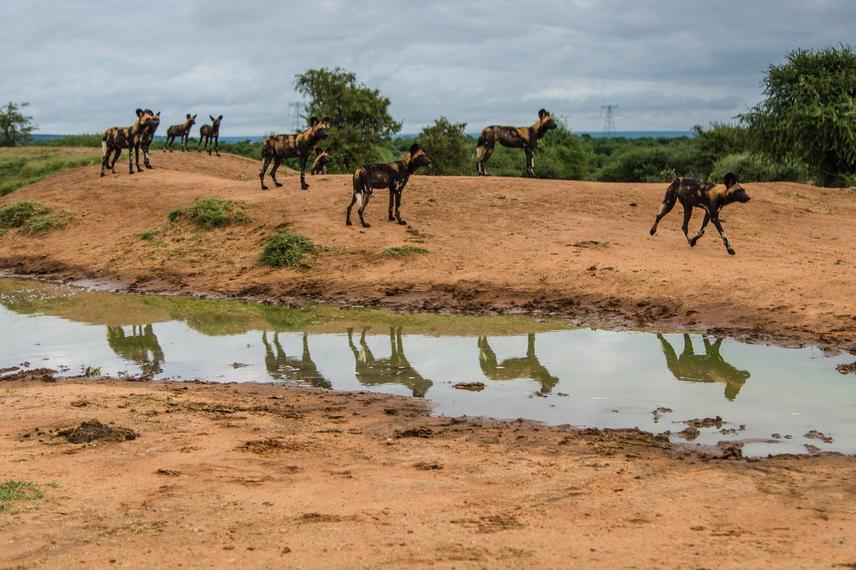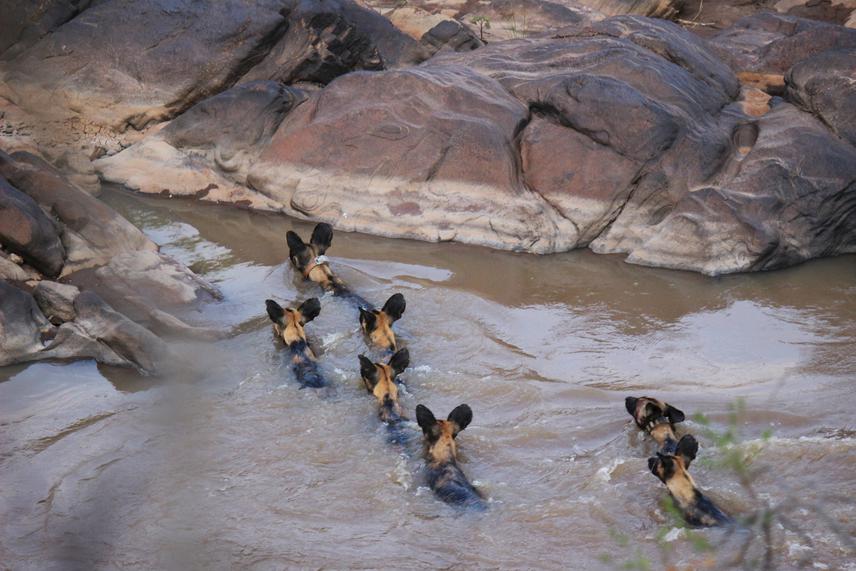Dedan Ngatia
Other projects
16 Nov 2015
Conserving Carnivores in Kenya: Addressing Disease Dynamics in Domestic Dogs (Canis lupus familiaris) in Rural Communities
27 Jun 2017
Assessing Domestic Dog (Canis familiaris) Demography and Rabies Disease Burden in Rural Communities, Kenya: Implications for Conservation of Wild Carnivores
31 Jan 2019
Protecting Human and Wildlife Health during Political Upheaval: Rabies and Canine Distemper in Rural Kenya
23 Aug 2021
Quantifying Costs and Benefits of Domestic Dogs for Restoration of the Globally Endangered African Wild Dog
Over the past 6 years, and through support from the Rufford Foundation, I have worked to curb mortalities to globally-endangered wild dogs (Lycaon pictus) from infectious diseases and persecution by people. Although wild dog deaths from both causes have reduced significantly, rising global temperatures now present challenges in urgent need of attention. Despite evidence that rising global temperatures affect wild dogs’ population viability, the mechanisms underlying this pattern are poorly understood.
Wild dogs have high energetic demands and therefore depend upon high hunting success to survive and reproduce. On hot days, wild dogs are less active and travel shorter distances relative to cool days, thus constraining their hunts to shorter periods of time. In turn, and because hunting success might reduce survival of both pups and adults, limited time spent hunting could ultimately influence population viability. Indeed, high temperatures are also correlated with reduced pup and adult survival.

Incredible shot, Mpala. ©Dedan Ngatia.
With support from the Rufford Foundation, I will test the hypothesis that wild dogs can offset any negative impacts of rising temperatures by employing spatial or temporal behavioural shifts. I have identified two behavioural responses to high temperatures that might allow wild dogs to cope with a warmer climate: shifts in activity patterns (crepuscular to nocturnal), and increased use of water. There is evidence that (1) wild dogs in Kenya are more nocturnal and (2) they range close to water following hot days (Ngatia et al., unpub. Work), although the costs and benefits of both behavioural shifts are unclear.

Swimming Dogs, Mpala. ©Dedan Ngatia.
I will use natural variation in weather as a surrogate for increased warming — the primary outcome of climate change in East Africa. Through this project, I aim to link direct impacts of weather on the behaviour, physiology, and hunting success of wild dogs.